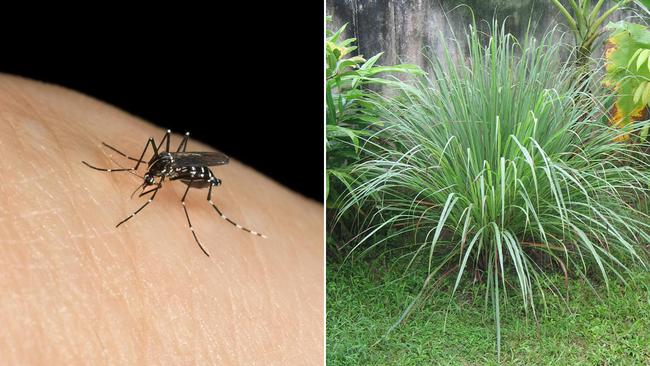Garden tips: mosquito moves; clay soils; fertilisers; tree suckers
Summer is mosquito season. Our gardening columnists offers three proven, natural methods of keeping them at bay.

We seem to get a lot of mosquitoes around in summer. Are there any plants that will discourage them? - Jayne Neubauer, Adelaide
Mosquitoes breed in standing water so, most important, eliminate all sources of stagnant water such as old pots and containers, buckets and blocked gutters. Add sand to pot plant saucers, stock ponds with fish and refresh birdbaths regularly. Plants have only a small deterrent effect. Lemon-scented foliage is effective when bruised or crushed but buying citronella oil is more effective. Try mass plantings of lemon-scented pelargoniums, lemon balm, rosemary, citronella grass (Cymbopogon nardus) and Leptospermum liversidgei ‘Mozzie Blocker’.
We have a neglected garden patch with the trifecta of clay soil, frosty climate and afternoon sun. Can we have a nice garden? - Karen Collins, Canberra
There are many lovely gardens with similar conditions in Canberra. Improve your clay soil with plenty of organic matter and Eco-flow gypsum, or build raised or mounded beds. Buy the excellent book The Canberra Gardener, published by the Horticultural Society of Canberra, which gives invaluable local guidance. A horticulturist at your local garden centre also should help you choose suitable plants and may offer a personal garden consultation service.
I know Seasol is an excellent tonic for plants but does it make redundant the use of other fertilisers to provide all nutrients and trace elements? - Carol Newsome, Kirwan, Queensland
Seasol is not a fertiliser, and contains marginal amounts of nutrient. It contains bioactive compounds that boost overall plant health, promote root growth and encourage beneficial soil micro-organisms. You still need to add fertiliser for strong plant growth; your choice depends on what you’re growing. Fertilisers made by Seasol include liquid PowerFeed and granular PowerFeed with Troforte Microbe Technology.
Our deciduous tree rewards us with amazing shade in summer but puts out lots of unwanted suckers, often a long way from the tree. Is there a solution or do I keep cutting them off? - Joan Lester, Sydney
Cutting them off constantly is the recommended action. I admit to using Roundup on them to great effect when they’re small and not too close to my mop-top robinia trees, but there is a risk of harming the main tree if you do too much and too close.
Send your questions to: helenyoungtwig@gmail.com or Helen Young, PO Box 3098, Willoughby North, NSW 2068. helenyoung.com.au. The best question for October wins a $100 hamper of Seasol products including Seasol Planting Gel, PowerFeed for Vegies, and Super Soil Wetter and Conditioner.
FLORA: The mystery of why some roses smell so sweet and others lack fragrance is being unravelled by French scientists using gene technology. A team at the University of Lyon compared the genomes of two rose varieties, one with a strong scent and the other without. They found one gene in particular was linked to the fragrant rose and subsequently repressed that gene in a different perfumed rose, resulting in it losing its fragrance. The researchers think this gene is responsible for production of organic compounds called monoterpenes that create scents such as mint and citronella. The hope is that fragrance can be bred back into roses — particularly those used in the cut-flower market, which rarely have a scent



